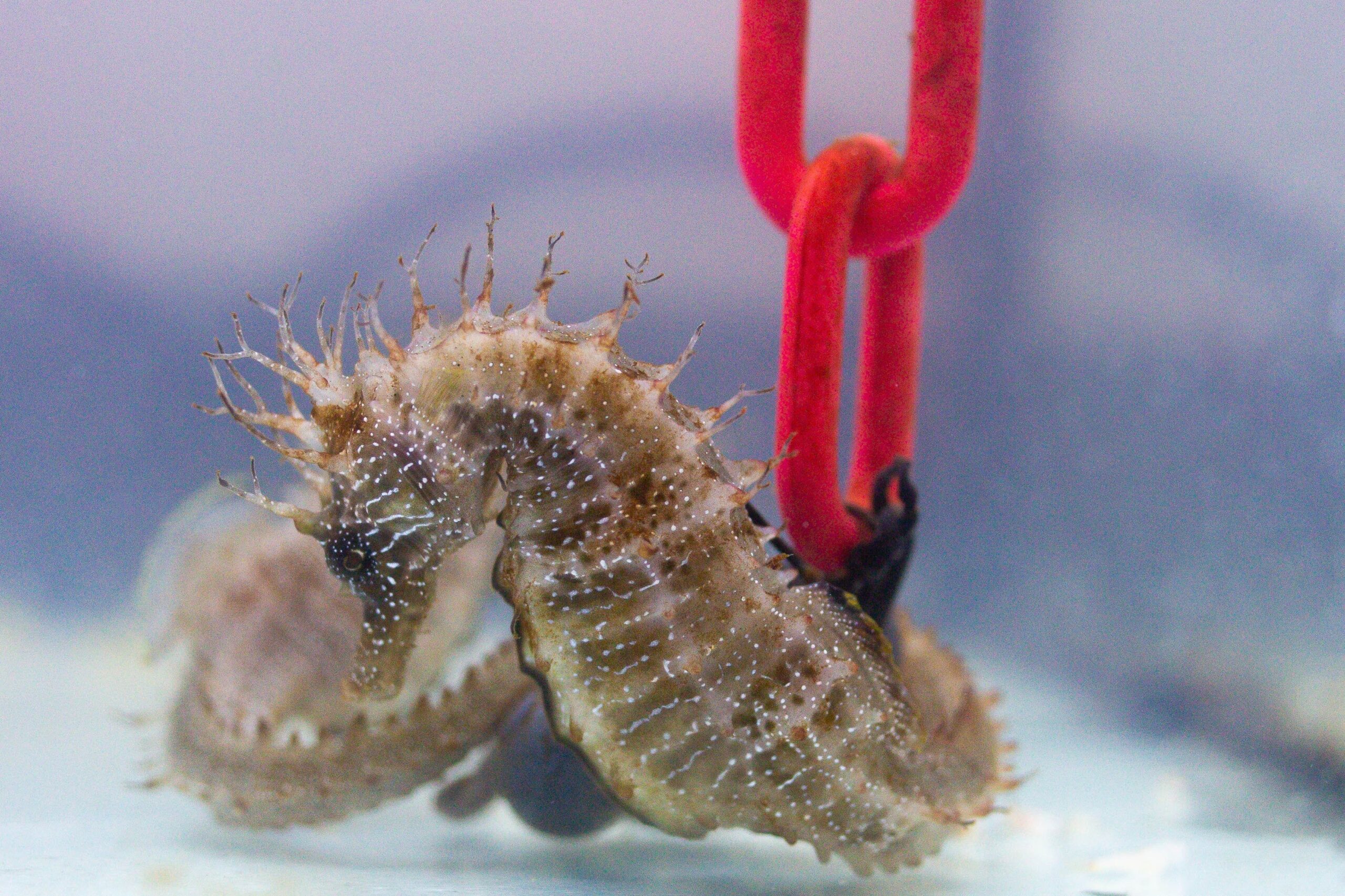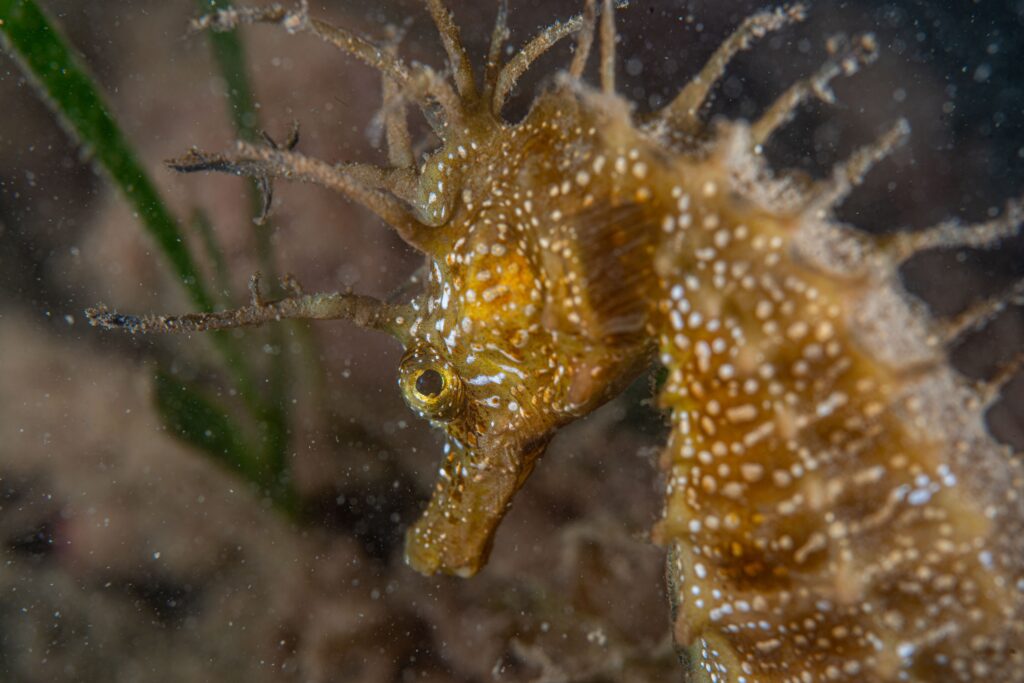"Exposure to high temperatures could imply high energy costs and a decrease" in the body condition of seahorses, reveal the preliminary results of a study carried out by researchers from MARE-Ispa on the effect of ocean warming on horse behavior and physiology Long-snouted Marine, Hippocampus guttulatus.
After a temporary stay at the Ispa Aquatic Organisms Animal House for the study, the seahorses will now be returned to their natural environment on July 20, at 14:00 pm, in Sol-Tróia.
"Although seahorses have thermal resilience and adaptability in the short term, the energy expenditure that exposure to higher temperatures can cause, in the medium to long term, could have consequences for the growth and survival of the species", explains Ana Margarida Faria, coordinator of the study and researcher at MARE-Ispa.
«Individuals exposed to higher temperatures showed greater activity and greater food intake, however, this extra energy supply was not enough to meet the needs caused by heat stress, and weight loss was observed in these couples», says Miguel Correia, also a researcher at MARE-Ispa and at the International Union for Conservation of Nature.
According to the researchers, couples of this species were exposed, under controlled laboratory conditions, to higher temperatures that simulate the effect caused by climate change predicted for the end of this century.

These seahorses come from the Sado estuary, where a population of seahorses of two species was detected, the long-nosed seahorse Hippocampus guttulatus and the common seahorse H. hippocampus.
In Portugal, the populations of Ria Formosa are the most studied, and in the last decade they suffered a reduction of around 90%.
“These species, as well as their preferred habitat (seagrass meadows), are threatened and protected by national and international laws, so it is of critical importance to increase scientific knowledge about these priority species for conservation”, stress the responsible for the study.
Gonçalo Silva, from MARE-Ispa reinforces that «it is absolutely urgent and fundamental to collect scientific data on seahorses in the Sado estuary, so that decisions can be taken and the implementation of mitigation and conservation measures, based on science».
«In addition to the need to conserve these endangered species, their charisma towards society makes them flagship species, used in awareness-raising and conservation actions for marine biodiversity, generating a positive effect as a whole», he concludes.



















Comments